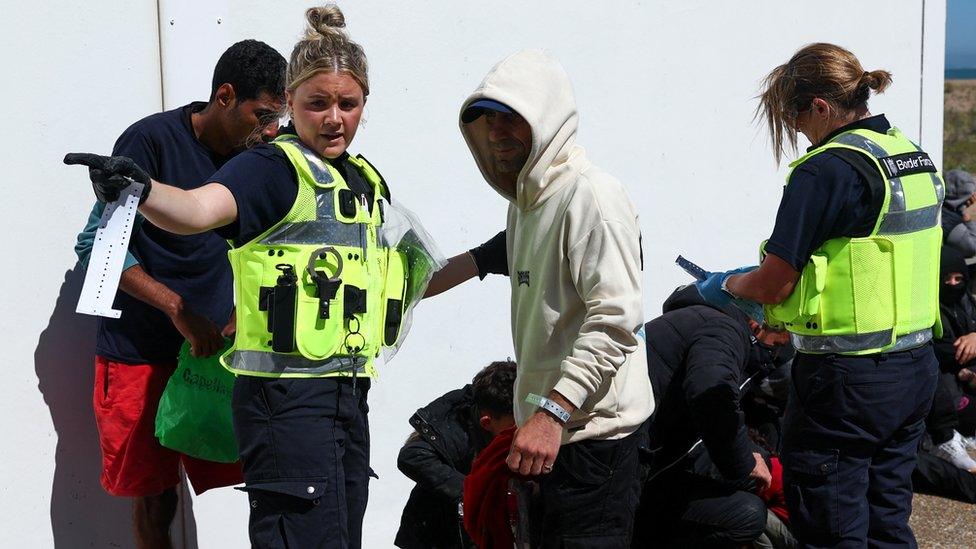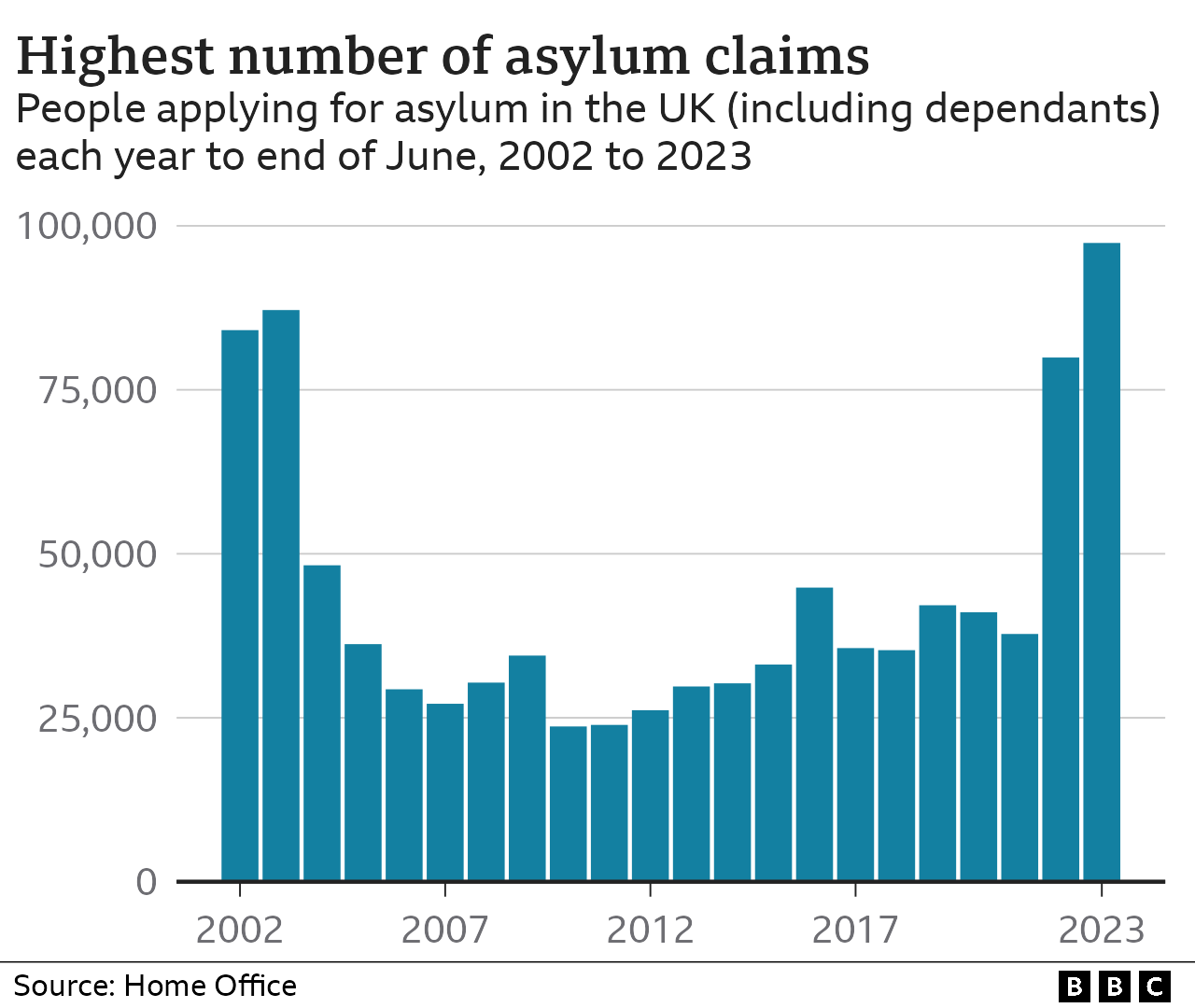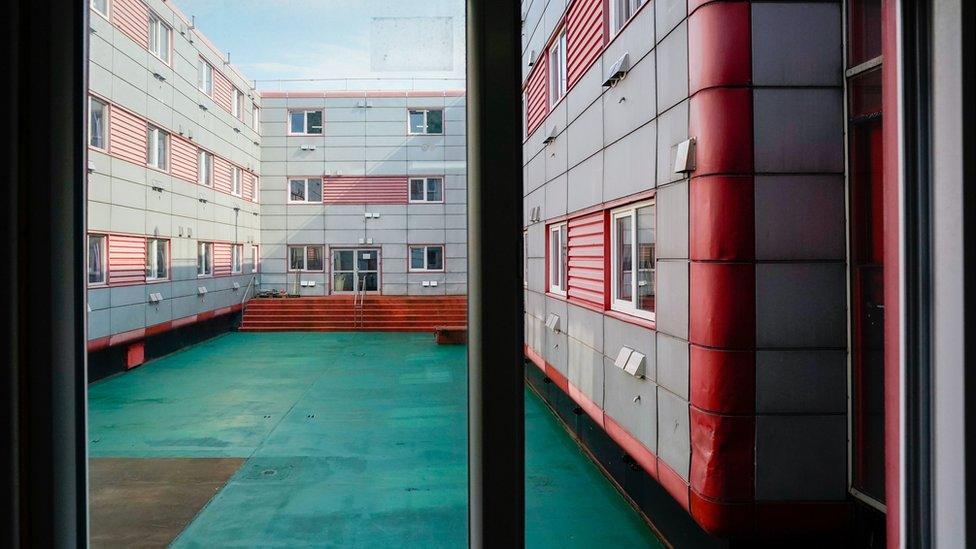Rishi Sunak says pressure on the asylum system is unsustainable
- Published

Border Force officers assisting people believed to be migrants in Dungeness this month
Rishi Sunak has warned the UK's asylum system is facing unsustainable pressure after the cost almost doubled in a year to nearly £4bn.
The prime minister, who has made stopping small boats one of his top five priorities, said the cost was "unacceptable".
Home Office asylum spending rose by £1.85bn in the year 2022/23.
Labour said the record high asylum backlog pointed to "disastrous" handling by Mr Sunak.
According to Home Office figures, 19,382 people had crossed the Channel on small boats by 24 August this year.
But small boat crossings in the first six months of 2023 were 10% down on the same period last year.
"That is the first time that has happened since the small boats crisis has emerged," Mr Sunak told reporters.
"That shows that the plan is working."
According to government statistics, the total cost of the asylum system to the taxpayer in 2022/23 was £3.97bn - up from £2.12bn in 2021/22.
Only a decade ago that figure was £500.2m.
Statistics also show 80% of asylum seekers are waiting longer than six months for an initial decision.
Earlier the prime minister told the Daily Express, external: "The best way to relieve the unsustainable pressures on our asylum system and unacceptable costs to the taxpayer is to stop the boats in the first place.
"That's why we are focused on our plan to break the business model of the people smugglers facilitating these journeys, including working with international partners upstream to disrupt their efforts, stepping up joint work with the French to help reduce crossings and tackling the asylum backlog."
Overall, a total of 175,457 people were waiting for an initial decision on an asylum application in the UK at the end of June 2023 - the highest figure since records began in 2010. It was also up 44% from 122,213 for the same period last year.
Of these, 139,961 had been waiting longer than six months for an initial decision, up 57% year on year from 89,231 and another record high.

Labour said the backlog amounted to a "disastrous record" for Mr Sunak and Home Secretary Suella Braverman, while campaigners called for asylum claims to be processed more efficiently.
The Home Office said the government was "on track" to clear the legacy backlog by the end of the year, and added that progress has been made since June.
Mr Sunak said: "We've already reduced the legacy backlog by over 28,000 - nearly a third - since the start of December and we remain on track to meet our target.
"But we know there is more to do to make sure asylum seekers do not spend months or years - living in the UK at vast expense to the taxpayer - waiting for a decision."
Peter Walsh, senior researcher at the Migration Observatory at the University of Oxford, said it was becoming harder to see how government could achieve its pledge to eliminate the legacy backlog of older claims by the end of the year, as the rate of decision-making would have to more than double.
An asylum seeker is a person who flees their home country, enters another country and applies for the right to international protection and to stay in that country.
In the UK, asylum seekers are not allowed to work and must rely on state support. Housing is provided, but asylum seekers can not choose where it is. Small boat arrivals account for 45% of the total number of people claiming asylum in the UK.
The remains of an English Channel inflatable recovered by the UK Border Force.
- Published24 August 2023

- Published7 August 2023
